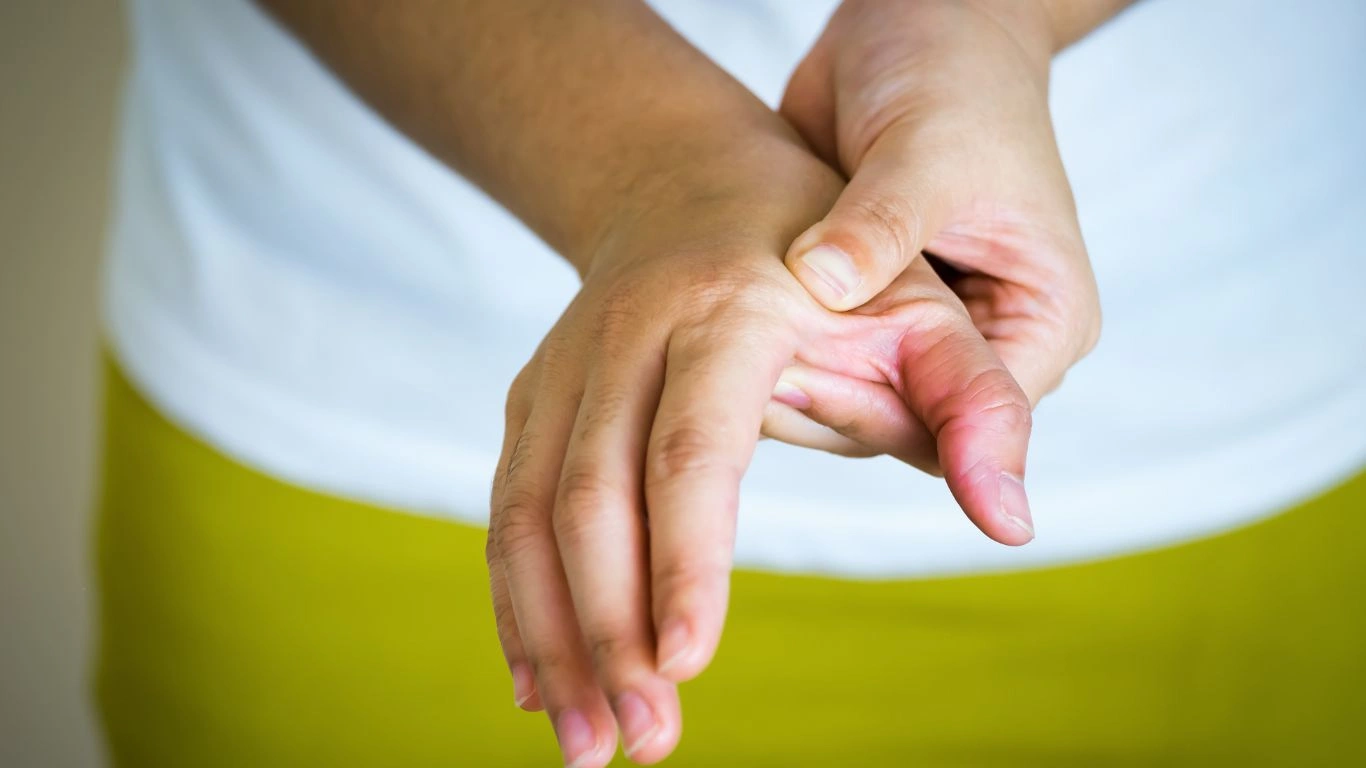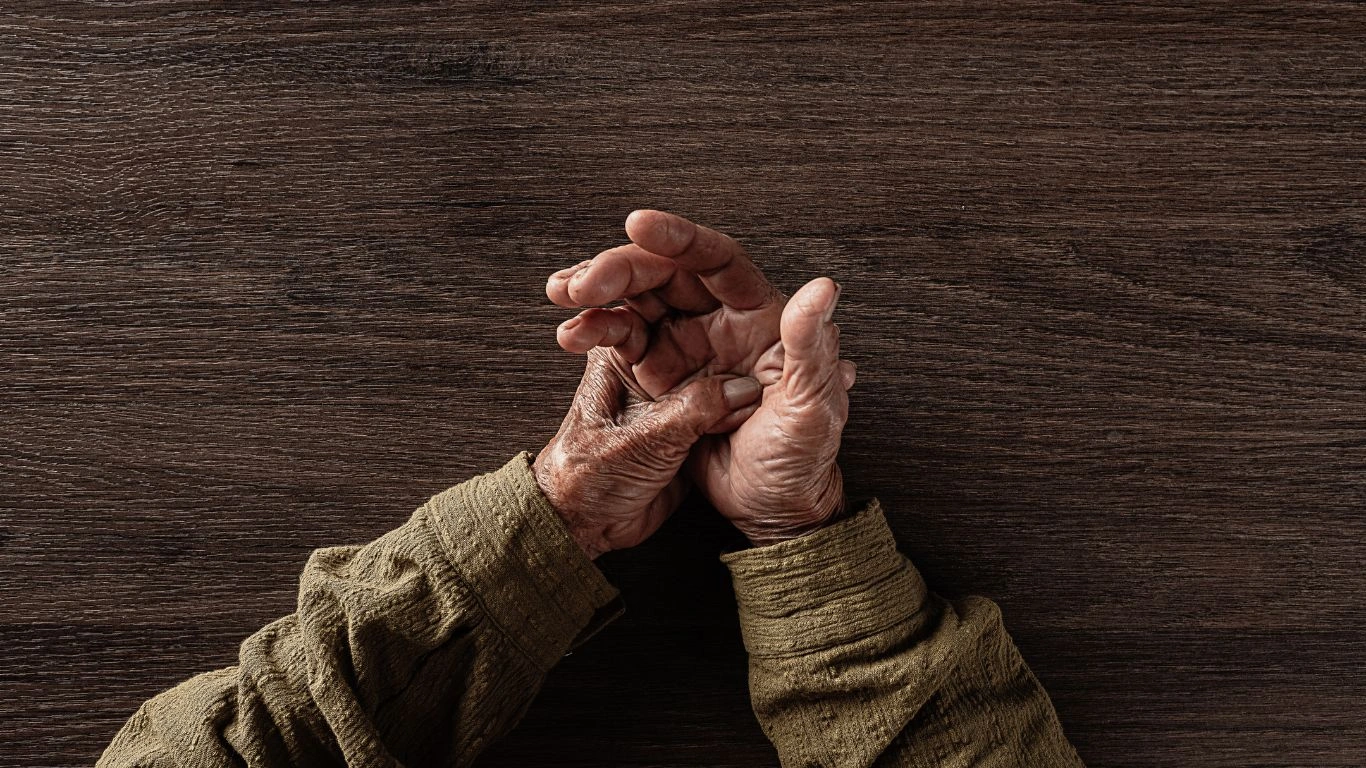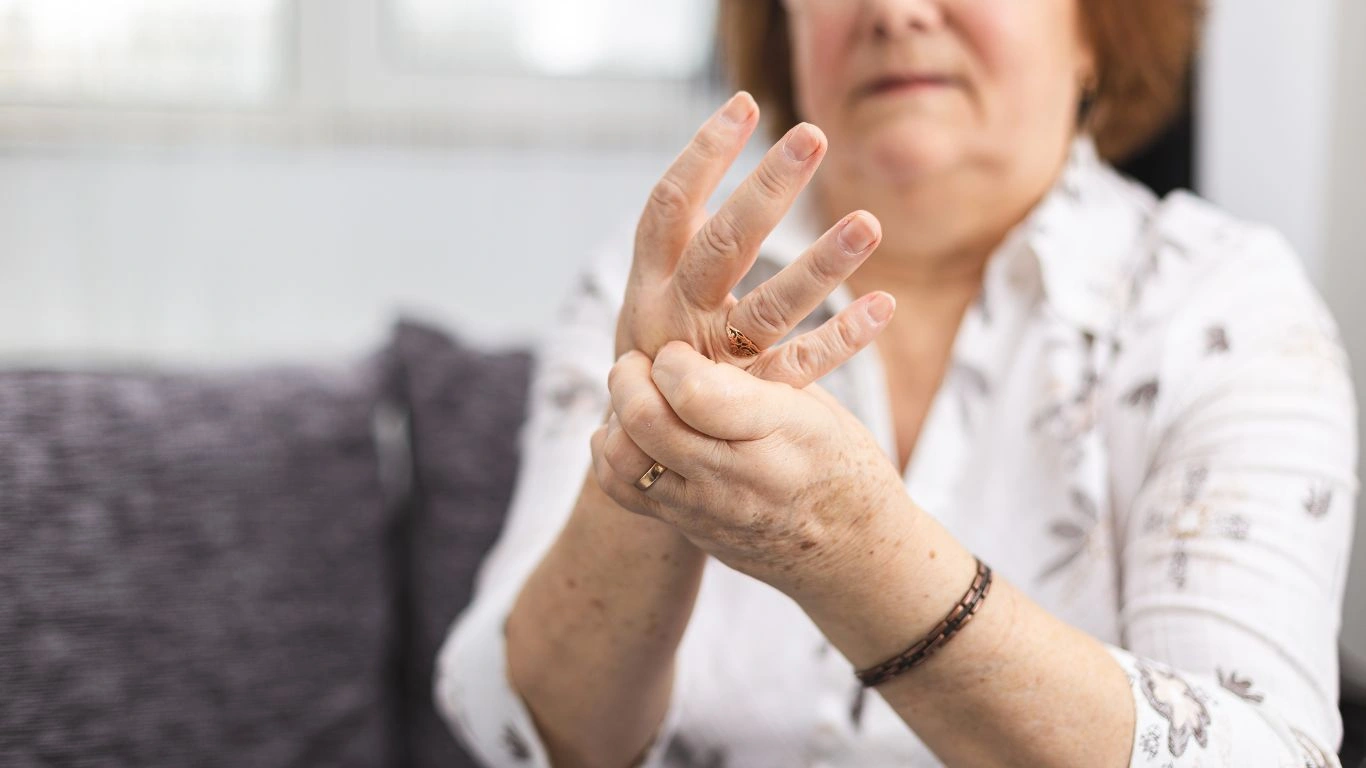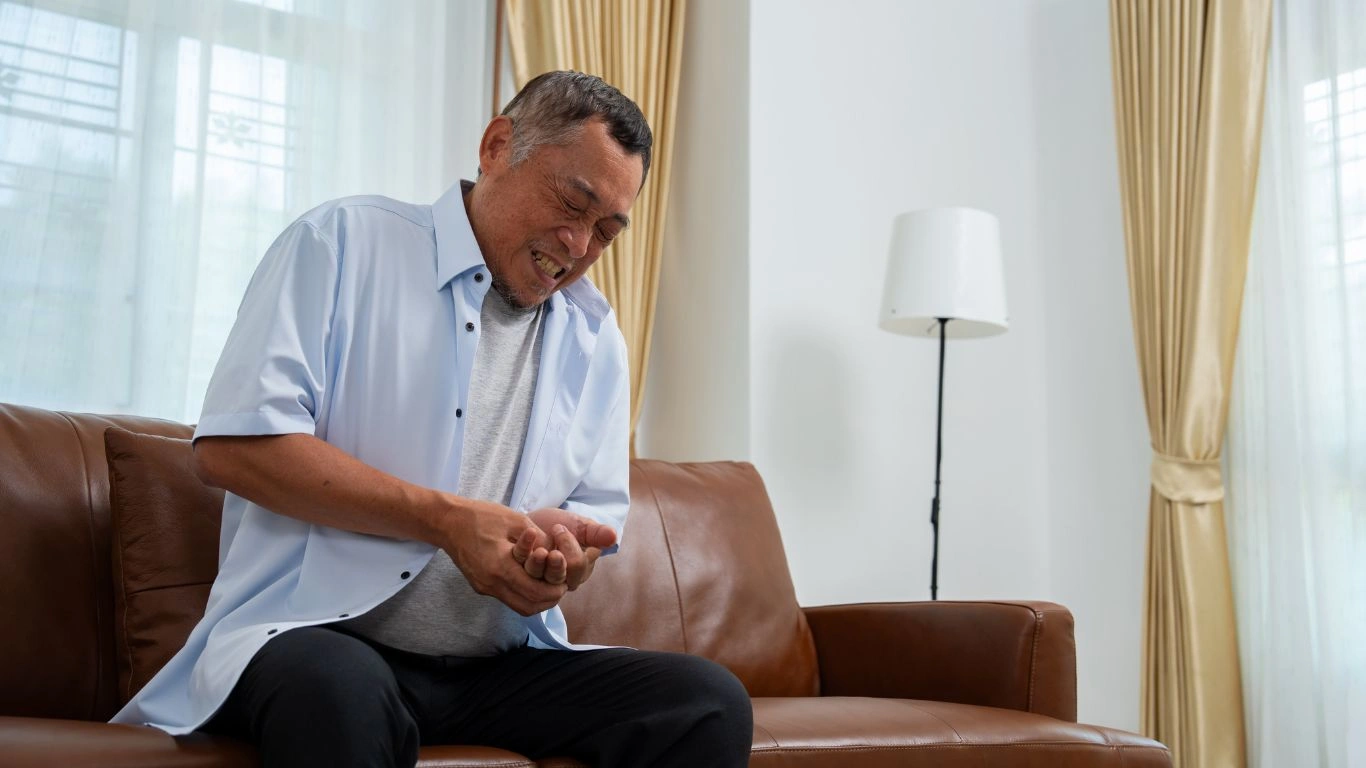How Rheumatoid Arthritis Impacts Your Emotional Health – Coping Strategies
Living with rheumatoid arthritis (RA) goes beyond just managing physical symptoms. While we often focus on joint pain, stiffness, and inflammation, one of the most overlooked aspects of RA is how it impacts your emotional health. As a Rheumatology Nurse Practitioner, I’ve seen firsthand how much the psychological burden of RA can affect my patients. It’s not just about the medications or physical therapy – it’s about how we cope emotionally with living with a chronic condition. The emotional toll of rheumatoid arthritis can often be as debilitating as the physical symptoms, and that’s why it’s so important to address the mental health side of this condition.
The Hidden Emotional Struggles of Rheumatoid Arthritis

When we talk about rheumatoid arthritis, most people immediately think about the physical symptoms like swollen joints, fatigue, or morning stiffness. But what we don’t often discuss enough is how RA can deeply affect your emotional well-being. It’s common for people with chronic illnesses, like RA, to experience feelings of anxiety, depression, and even anger. In fact, studies have shown that individuals with RA are more likely to have coexisting mental health conditions than those without chronic diseases. And it’s not just about feeling “down” every now and then – the emotional distress from living with RA can be overwhelming, persistent, and truly challenging to manage.
The Link Between Chronic Pain and Emotional Health
Chronic pain isn’t just a physical symptom; it can have a significant impact on your mental state too. When pain becomes a constant companion, it’s easy to feel like you’re stuck in a cycle of discomfort that never seems to end. For many, this can lead to feelings of helplessness and frustration. From a nurse practitioner’s perspective, I’ve seen patients who feel trapped by their pain, unsure of how to break free from the emotional toll it takes on their lives. It’s no wonder that many people with RA experience anxiety about their future and the progression of their disease. When pain and discomfort become a constant part of your life, it’s only natural to start feeling worried or even depressed.
One thing that often goes unaddressed is the psychological toll that comes with feeling “different” from others. When you’re dealing with RA, your daily activities – even something as simple as picking up a cup of coffee – can feel like a struggle. This can lead to social isolation, as people with RA may find it difficult to keep up with friends, family, or colleagues. Over time, this sense of isolation can deepen, leading to sadness, anxiety, or even a lack of motivation to do the things that once brought joy. The emotional impact of RA isn’t just about physical pain; it’s also about the emotional burden of feeling like you’re being held back from living life to its fullest.
Building Emotional Resilience in the Face of RA

As challenging as it is, the emotional aspect of RA doesn’t have to be something you simply endure. Building emotional resilience is crucial for managing the mental health side of RA, and it’s something I encourage all of my patients to work on. Resilience isn’t about ignoring your feelings or pretending everything is okay when it’s not. It’s about finding ways to cope with the emotional weight of the disease so that you can continue to lead a fulfilling life.
One of the first steps in building emotional resilience is acknowledging the impact that RA has on your mental health. It’s easy to push those feelings aside or think that you should just “get over it,” but that only adds to the emotional burden. Accepting that RA can affect your emotions is the first step toward better mental health. From there, you can start taking proactive steps to improve your emotional well-being, which might include therapy, support groups, or lifestyle changes.
Seeking Support from Others
It’s easy to feel like you’re alone when dealing with a chronic illness. But one thing I’ve noticed is how powerful it can be to connect with others who are going through the same thing. Support groups, whether in person or online, can be a great way to share experiences and provide mutual encouragement. I’ve seen patients form strong connections through these groups, which can be incredibly validating. It reminds them that they’re not alone in their journey. Connecting with people who truly understand what you’re going through can be a huge emotional boost, reducing feelings of isolation and anxiety.
Of course, not everyone may feel comfortable in a group setting, and that’s okay. There are other ways to seek support, whether it’s through a therapist, counselor, or even close friends and family who are willing to listen. The key is to find people who will provide empathy and understanding, not judgment. Emotional health is about creating a network of support that helps you manage both the highs and lows of living with rheumatoid arthritis.
Mindfulness and Stress Reduction Techniques

Another strategy I often suggest to my patients is mindfulness and stress reduction. Chronic stress can exacerbate both physical and emotional symptoms of RA, so finding ways to relax and manage stress is essential. Mindfulness practices, such as meditation, yoga, and deep-breathing exercises, can help you stay present and reduce the mental clutter that comes with living with a chronic condition.
One of the things I love about mindfulness is that it’s not about completely eliminating stress or pain – because let’s be real, that’s not going to happen overnight. It’s about learning to respond to challenges in a way that helps you stay calm and grounded. For many of my patients, simple practices like deep breathing have been a game changer in terms of managing both the emotional and physical stress of RA. The more you practice mindfulness, the easier it becomes to handle stress and negative emotions when they arise.
In the next section, we’ll dive deeper into the role of therapy and other psychological tools that can support your emotional health while living with RA. Stay tuned for more tips on how to cope with the emotional aspects of this condition and live a balanced life.
Therapy and Psychological Tools for Managing RA-Related Emotions

In Part 1, we talked about how rheumatoid arthritis (RA) can impact your emotional health, but now let’s dive deeper into the tools and strategies that can help you manage those emotions. As someone who works with patients every day, I can tell you that therapy and mental health support are just as essential to RA management as the medications you take for the physical symptoms.
One of the most effective ways to address the emotional struggles of RA is by seeking professional support through therapy. Many of my patients have found that talking to a therapist who specializes in chronic illness or pain management has helped them navigate the mental health challenges that come with RA. Cognitive-behavioral therapy (CBT), in particular, has been a game-changer for many of my patients. CBT helps you identify negative thought patterns and reframe them in a more positive, realistic way. For instance, if you find yourself constantly thinking, “I’ll never get better,” CBT helps you reframe that thought to something more balanced, like “I’m doing everything I can to manage my RA, and I’m improving in small ways each day.”
The Role of Therapy in Building Mental Resilience
When you’re living with a chronic illness like RA, it’s easy to feel overwhelmed, helpless, or even hopeless at times. Therapy can provide a safe space to explore these emotions and find ways to cope with them. Sometimes, just having a nonjudgmental person to talk to can be a relief. It’s easy to feel like people around you may not understand what you’re going through, but a therapist or counselor can help you process those feelings without making you feel bad for experiencing them.
Additionally, therapy is not just about talking about your problems—it’s also about building skills for emotional resilience. Over time, you learn to handle difficult emotions more effectively and find healthier ways to cope. For example, one technique I often recommend is grounding exercises, where you focus on your breath or your surroundings to help reduce feelings of anxiety or panic. This practice is simple but incredibly powerful when it comes to calming your mind during stressful moments.
Building a Support System: Why It’s Crucial for Emotional Health

Now, let’s talk about something that can’t be overstated when managing the emotional impact of RA: building a strong support system. We’re social creatures, and isolation can make both physical and emotional struggles even more challenging. Over the years, I’ve seen patients who were initially hesitant to reach out for support, only to realize how valuable it is once they did. Whether it’s family, friends, or support groups, having a network to lean on can make all the difference in your emotional well-being.
One thing I always remind my patients is that your support system doesn’t have to be made up of people who are RA experts or even people who have chronic illnesses themselves. Sometimes, it’s about having a friend who will listen without offering unsolicited advice or a family member who just gets it. These small but consistent acts of empathy go a long way in helping you feel understood and less isolated. You don’t have to go through RA alone.
Support Groups: Sharing and Healing Together
If you’ve never been to a support group, I can’t recommend them enough. There’s something uniquely powerful about talking to others who are going through similar struggles. Many of my patients have found online support groups to be particularly beneficial, especially if they don’t have many local options. In these groups, you can exchange tips, vent frustrations, and even laugh together about the ups and downs of RA. The feeling of community can make you feel less like an outsider and more like someone who belongs to a group that truly understands your journey.
For some, these groups even become a place for lifelong friendships. It’s amazing to see how people who’ve never met in person can form such strong emotional bonds over shared experiences. If you haven’t yet considered joining one, I encourage you to look into options in your area or online. Sometimes, all it takes is one meaningful conversation to feel seen and supported.
Self-Care Practices to Improve Emotional Health

Now, let’s not forget about self-care. I get it: when you’re dealing with RA, it’s easy to feel like self-care falls to the bottom of the priority list. But it’s actually one of the most important things you can do for both your emotional and physical health. Think of self-care as your personal armor – it helps you stay strong when the world feels tough. And the best part? It doesn’t have to be complicated or time-consuming.
Simple acts of self-care can go a long way in improving your mood and helping you manage stress. For instance, getting enough sleep is a huge factor in emotional health. I can’t tell you how many times I’ve seen patients who are already struggling with RA feel even worse because they’re not sleeping well. Poor sleep can amplify both physical pain and negative emotions, making it harder to deal with the daily challenges of RA. So, creating a relaxing nighttime routine, avoiding screens before bed, and making your sleep environment as comfortable as possible are simple but powerful ways to improve your emotional health.
Exercise: Not Just for the Body, But the Mind
Another self-care practice I often encourage is gentle exercise. Now, I know that the idea of exercising with RA can be daunting, especially if you’re dealing with flare-ups. But hear me out: gentle movement, like walking or swimming, can do wonders for your mental health. Physical activity stimulates the release of endorphins—those feel-good chemicals that can boost your mood. Plus, regular exercise can help reduce inflammation, which means less pain, and in turn, less emotional stress.
When I talk to my patients about exercise, I remind them that it doesn’t have to be intense to be effective. The goal is to move in a way that feels good for your body. Even a 15-minute walk each day can provide emotional relief, and over time, you may notice a positive shift in your overall outlook. The important thing is consistency and finding something you enjoy—whether it’s yoga, stretching, or even dancing in your living room!
In the final section, we’ll talk about how to manage the more difficult days, including those times when your emotions feel overwhelming. But in the meantime, I hope these strategies give you a solid foundation for improving both your emotional and physical health while living with rheumatoid arthritis. Stay tuned for more helpful tips!
Managing the Tough Days: When RA Gets Overwhelming

As much as we try to stay positive and proactive, let’s be real—there will be tough days. Days when the pain flares up, when you’re feeling mentally drained, or when you just don’t have the energy to keep up with life. I’ve been there with my patients, and I know from personal experience that these days can feel like a heavy weight. The emotional toll during these moments can be overwhelming. But I want to reassure you—these days do not define your entire journey with rheumatoid arthritis. You are allowed to have hard days, and you’re not failing when those days happen. The key is to have strategies in place to get through them as gently as possible and know when to seek support.
Accepting the Ups and Downs of RA
One of the first steps in managing those overwhelming days is to accept that RA isn’t always predictable. It’s okay to feel frustrated when your body doesn’t cooperate, and it’s okay to have moments where you just need to rest and recharge. As someone who works in rheumatology, I can tell you that this fluctuation is a normal part of living with chronic illness. Your body will have good days and bad days, and part of your emotional health is learning to embrace both.
That doesn’t mean you have to like it—it’s completely natural to feel down when a flare-up hits—but it does mean recognizing that it’s just one part of your larger journey. One thing I encourage my patients to do during tough times is to practice self-compassion. It’s easy to become your own harshest critic when you’re not feeling well, but being kind to yourself, even when you’re struggling, can make a world of difference.
Mindset Shifts: Turning Negative Thoughts into Positive Action

During the hard days, it’s easy for your mind to spiral into negative thoughts. I’ve seen it happen with so many of my patients. Thoughts like, “I’m never going to get better,” or “This pain is going to last forever” can create a sense of hopelessness. But here’s the thing: those negative thoughts are not facts. They’re just thoughts, and they can be changed. This is where practicing mindfulness and cognitive reframing can truly help.
Instead of feeding into those negative spirals, try shifting your mindset to something more constructive. For example, when you feel like giving up, remind yourself of all the things you *are* doing to manage your RA. You might not be pain-free every day, but you’re still taking care of your body, you’re still seeking treatment, and you’re still learning ways to improve your emotional health. Even small steps forward are worth acknowledging and celebrating. It’s not about perfection—it’s about progress, no matter how slow it might seem.
Break the Cycle with Gentle Movement
On the tough days when the emotional strain is high, I often recommend light movement as a way to break the cycle of frustration. Now, I know it’s tempting to just curl up and rest when you’re feeling down (and there’s absolutely a time for rest), but gentle movement can actually lift your mood and help you get out of that emotional rut. Something as simple as a short walk around the block, stretching, or even a few minutes of yoga can help release tension and improve your mental state.
I’ve seen it time and time again: When my patients push through the mental block and just move their bodies in a way that feels right for them, it helps. You don’t have to do a full workout—just a few minutes can make a noticeable difference. Exercise triggers the release of endorphins, which are natural mood boosters. It might not completely eliminate your pain, but it can help reduce emotional stress and make you feel more in control.
Dealing with RA Flare-Ups: The Emotional Rollercoaster
Flare-ups can bring out a whole new level of emotional stress. They’re not only physically painful, but they also disrupt your routine, impact your mental health, and sometimes even bring on feelings of guilt or frustration. I’ve had countless patients tell me they feel “like a failure” when a flare-up occurs, especially if they’ve been feeling good for a while. But let me tell you this: RA flare-ups don’t mean you’re doing anything wrong. They’re simply part of the disease. It’s how your body responds to different triggers, and sometimes, it’s just out of your control.
Managing Emotional Strain During a Flare-Up
When you’re in the middle of a flare-up, it can feel like your body is working against you. But emotionally, it’s important to remember that your worth is not tied to how your body is performing on any given day. It’s normal to feel frustrated, angry, or sad during a flare-up, but it’s also important to acknowledge those feelings and give yourself the grace to experience them. Allow yourself to feel upset—but don’t let that upset take over your entire perspective. Accepting the flare as part of the process, rather than seeing it as a failure, can help reduce the emotional weight.
During flare-ups, it’s also important to communicate openly with your support system. Let them know what you’re going through so that they can offer the right kind of support. Whether it’s someone helping with household chores, offering an ear to listen, or just being there to sit with you, having people who understand your struggles can make a big difference. And if you don’t have a solid support system yet, it might be a good time to look into local or online support groups where others are going through similar experiences.
Conclusion: Moving Forward with a Holistic Approach
When it comes to rheumatoid arthritis, emotional health is just as important as physical health. Managing both aspects of your well-being together can help you live a more balanced and fulfilling life. It’s not easy, and there will be days when it feels like everything is falling apart. But remember, you’re not alone. With the right strategies, support, and mindset shifts, you can better manage the emotional side of RA and continue to thrive despite the challenges.
Taking care of your emotional health is a process, and it’s one that’s worth investing in. The combination of therapy, building a support network, practicing mindfulness, and self-compassion can create a solid foundation for managing your emotional well-being. You’re allowed to have tough days, but you’re also allowed to have days where you feel empowered, supported, and strong. Keep moving forward, one day at a time, and know that every step you take is progress.
For more tips on living with rheumatoid arthritis, you can visit this link for additional resources and support. Take care of yourself!
Disclaimer: The content provided in this article is for informational purposes only and should not be considered medical advice. Please consult with your healthcare provider or a qualified professional for personalized medical guidance.

Tarra Nugroho is a dedicated Nurse Practitioner with a strong foundation in family and preventive care. She brings both compassion and clinical expertise to her practice, focusing on patient-centered care and health education. As a contributor to Healthusias.com, Tarra translates medical knowledge into clear, empowering articles on topics like women’s health, chronic disease management, and lifestyle medicine. Her mission is simple: help people feel seen, heard, and informed—both in the clinic and through the content she creates. When she’s not caring for patients, Tarra enjoys weekend hikes, plant-based cooking, and curling up with a good health podcast.







